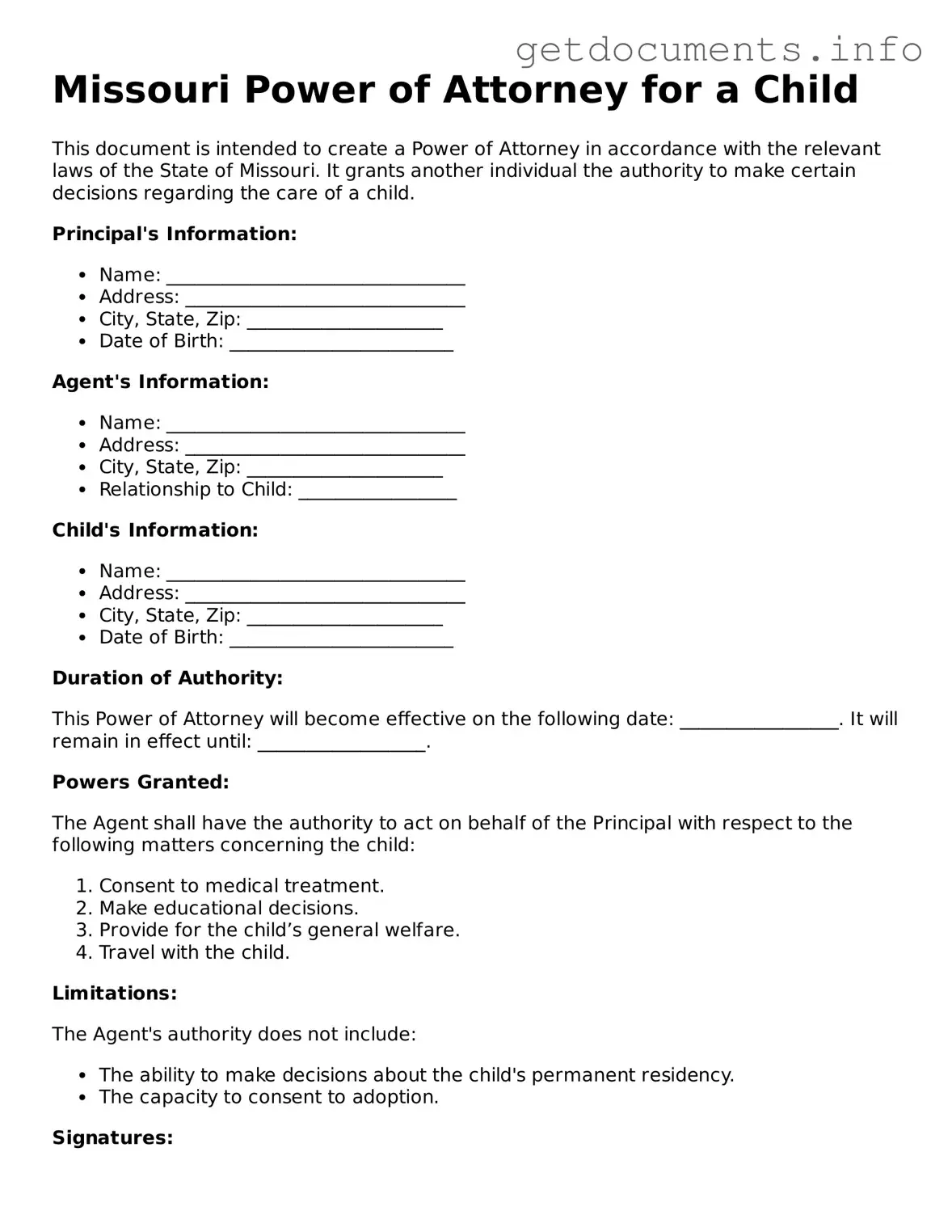Free Power of Attorney for a Child Template for Missouri
The Missouri Power of Attorney for a Child form allows a parent or legal guardian to designate another individual to make decisions on behalf of their child. This legal document ensures that a trusted person can manage the child's welfare in specific situations, such as during travel or temporary guardianship. To get started, fill out the form by clicking the button below.
Access Power of Attorney for a Child Editor

Free Power of Attorney for a Child Template for Missouri
Access Power of Attorney for a Child Editor
Got places to be? Complete the form fast
Fill out Power of Attorney for a Child online and avoid printing or scanning.
Access Power of Attorney for a Child Editor
or
⇩ PDF File
